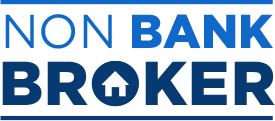Most people would be surprised at how many people use non bank home loans already, and it is expected that they will become even more popular in 2022.
The term “Non Bank Lending“, “Non Bank“, “Bank Alternatives” or “Second Tier Lenders” simply refers to those lenders who are involved in the business of providing finance, but are not registered banks. Some of the non bank lenders have come from Australia and are in fact larger than the smaller banks that we have in New Zealand.
In the past many non-bank lenders have been quite a lot more expensive but as banks have started lifting their home loan mortgage rates the non-banks are now a very viable option. Apart from interest rates, the non bank home loans are more flexible and suit some situations better than what a bank can offer.
What Are Non Bank Home Loans?
In New Zealand we refer to a non-bank lender as a financial institution that offers credit and loan products but is not a bank.
Non-bank institutions now make up around 2% of the home loan market in New Zealand and they are still regulated by the Reserve Bank of New Zealand.
They are still small when compared to the banks.
The main difference between banks and non-bank financial institutions is that non-banks do not hold a New Zealand banking license and therefore can often offer loans that do not fit within banks normal criteria.
Some common situations are;
- The banks have said “NO” due to policy changes – with the recent changes introduced under the Credit Contracts and Consumer Finance ACT (CCCFA) on 1st December 2021 the banks lending policy has become harder for many people and particularly first home buyers who often require larger mortgages. There have been a lot of people that would have been approved by banks prior to this, but now are not able to get a bank approval. The interpretation of the new rules has been mixed and many people within the industry have already been asking that the rule changes be reviewed as the consequences are not in line with why the rules were introduced.
- You had had some difficulty proving income – this is common with self employed people. Often if you speak to a bank you will get the wrong advice; whereas good specialist non bank mortgage broker can help. The banks are quite specific in what they want, and at times that is not going to be easy to provide.
- You have some past credit or account conduct issues – some people refer to this as bad credit home loans and it could be as simple as a default showing on your credit check, a judgement or even a bankruptcy. For some time the banks have also been reviewing account conduct of borrowers and this has become something more important now with the recent changes, and in fact the lenders are going through bank transactions in detail now to check that your declared expenses are accurate and seeking explanations on any unusual transactions.
- Your age means the banks want to limit the loan term – banks want you to pay the mortgage on your home off before you retire and most are saying that you “will” retire at age 70-years; hence someone that is 50-years old will have their mortgage application assessed on a 20-year loan term instead of 30-years. When shorter loan terms are used to assess the application as well as the banks default assessment interest rate the affordability (loan servicing) will often not work.
In most cases the ultimate aim will still be to refinance to a bank mortgage when it’s possible to do so; however now that the interest rates are not much higher people tend not to be concerned about having a non bank home loan for longer periods of time.
Non Bank Home Loans Are Regulated
In many countries the normal home loans are more like the non bank home loans that we have in New Zealand.
In the United States, a conforming mortgage is one which meets the established rules and procedures of the two major government-sponsored entities in the housing finance market (including some legal requirements). In contrast, lenders who decide to make non conforming loans are exercising a higher risk tolerance and do so knowing that they face more challenge in reselling the loan. Many countries have similar concepts or agencies that define what are “standard” mortgages.
In New Zealand our banks are regulated by the Reserve Bank and must adhere to the rules that are set; however non bank lenders are able to work outside of these rules. Of course all lenders in New Zealand including non bank lenders must meet the lender responsibility principles meaning they are required to make reasonable enquiries before entering into a loan.
As mentioned, the recent changes introduced under the Credit Contracts and Consumer Finance ACT (CCCFA) on 1st December 2021 have impacted the banks lending policy and the non-banks; however in many cases the non-bank lenders are able to accept more than what a bank might and this makes it easier to have a home loan approved.
Overall the non bank home loans remain regulated and ‘quite normal’ so as a borrower you are still offered good protection.
It’s Important To Know Your Options
You can make your own enquiries and decisions and work directly with the lenders, or like many Kiwis you can work with a mortgage adviser who can assess your lending requirements and situation before helping source the finance from the most suitable lender.
We may be known throughout New Zealand as leading non bank brokers, but we also deal with the banks as well, so you can be assured we will find you the best options available.
Tell us your story and we can advise you about both the bank mortgages and non bank home loans.

